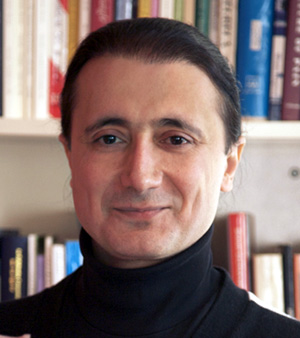Al-Qaida’s branching out and transformation into the Islamic State of Iraq and Syria (ISIS/ISIL), its capture of vast territories, its declaration of an Islamic Caliphate, and its vow to conquer lands beyond the Middle East threaten the lives and the way of life of present-day Muslims and non-Muslims alike in Syria, Iraq, and much beyond. Today, al-Qaida no longer aims to advance a limited political program, such as ousting Western military presence in the Middle East. Instead, it seeks to re-Islamize the Muslim World according to Wahhābī doctrine by regulating the lives of Muslims and their relationship to non-Muslims in a manner that conforms to Muslim scriptures. By merging modern-day underdogs’ quest for recognition and power with Wahhābī doctrine, al-Qaida aims to preside over a rich concentration of human resources in the Middle East and direct it towards an ambitious political program: to revive the recurring ancient notion of a powerful Muslim empire, one that is free from non-Muslim political, social, and cultural influence.
The rise of al-Qaida cannot be stemmed by military means alone. Because of the increasing popularity of al-Qaida’s ideology among Muslim youth in the Middle East and worldwide, understanding the organization’s origins is necessary if secular political forces are to succeed in mitigating its rising tide. Al-Qaida’s Wahhābī doctrine has gained significant ground among the Muslim masses, to the extent that in today’s Syria, the vast majority of the foreign and domestic rebel groups adhere to it, whether they organizationally belong to al-Qaida, its daughter ISIL, or rival organizations that Western propaganda outlets have dubbed “moderate,” such as the Army of Islam or the Free Islamic Levant, or numerous other Salafi jihadi groups.
The fight against al-Qaida must be coupled with sponsoring re-education programs within Muslim communities globally to challenge the hegemony of dogmatic religious thinking over all aspects of life and to revise hate-generating and violence-inspiring scriptures.
If the Muslim masses worldwide remain unpersuaded that the Saudi-sponsored terror-producing Wahhābī doctrine provides bad solutions to their needs, the other regions of the world will continue to coexist for a prolonged period with a Middle East ruled either by secular authoritarian police states, or by their tyrannical religious alternative, and thereby suffer the spillover effects of those regimes beyond the territories where they rule.
Mark Tomass, Ph.D., is Adjunct Professor at Harvard University. Professor Tomass’s research work focuses on monetary and credit crises, civil conflict in the Middle East, and organized crime. His current work on civil conflict draws from his experience as a native of Syria and his scholarship while a research fellow at Harvard University’s Center for Middle Eastern Studies, including the publications Religious Identity, Informal Institutions, and the Nation States of the Near East, Game Theory Models with Instrumentally Irrational Players: A Case Study of Civil War and Sectarian Cleansing, and his forthcoming book entitled: “The Religious Roots of the Syrian Conflict: The Remaking of the Fertile Crescent.” His book employs economic concepts that highlight the role of political entrepreneurs in the formation of the religious map of the Middle East and the civil conflicts they have generated. Professor Tomass obtained his doctoral degree in monetary economics in 1991 at Northeastern University. He has taught Money and Banking, International Trade and Finance, and Comparative Economic Systems in various U.S. and international universities and business schools, including Harvard University, Babson College, the University of New York in Prague and Masaryk







